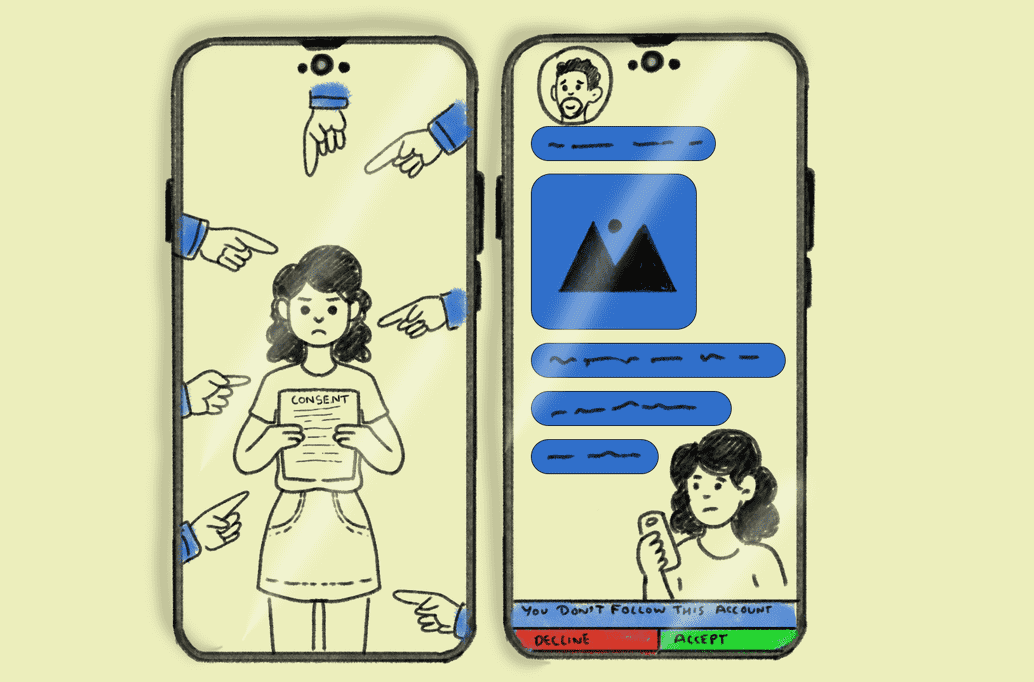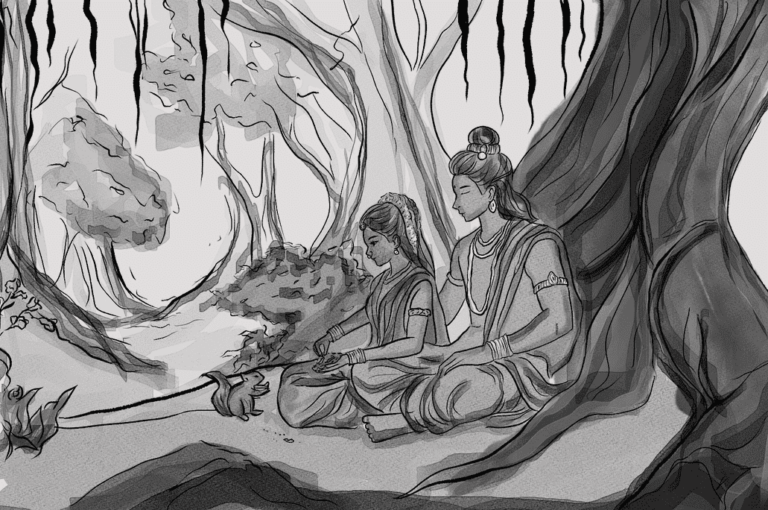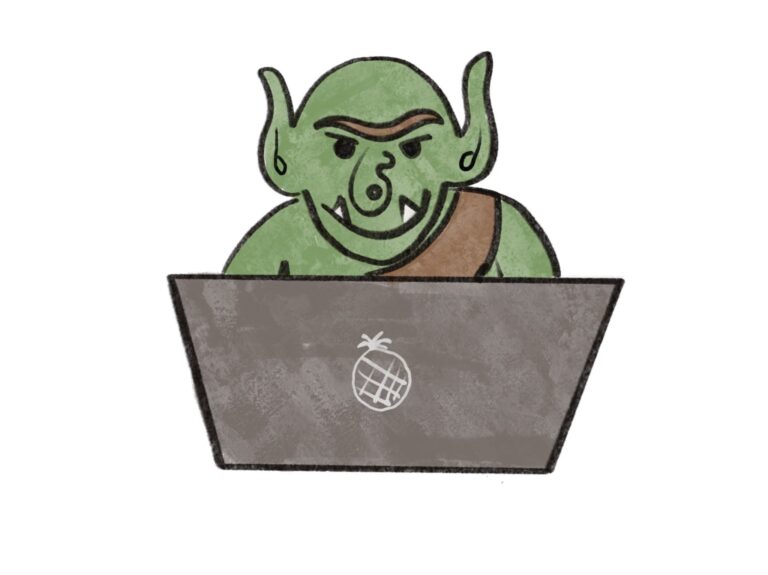The internet has spoken
“Do you have anything to say for yourself?”
“Umm….”
“Sorry, too late, the internet has spoken.”
Recently, I began posting Bumble screenshots on Twitter because I realized that they garnered a high rate of engagement. No sooner did I cross the threshold of the ‘socially acceptable Internet time for women’ than I got canceled. This is a sociological analysis of my cancellation on Twitter and a further comment on the politics of social media.
Being a student of sociology, I have been primed in a manner so as to question anything and everything that goes on around me. Mind you, ‘anything’ means anything at all – starting from social inequality right down to why people get tattoos. Nothing is as simple as it might seem on the surface. Innumerable people considered my Bumble screenshots to be “annoying”, which subsequently led to my cancellation on the platform of Twitter. It was initiated on the 30th of December, when a certain Twitter user quoted one of my tweets with the line “Somebody ban this girl from bumble man”. Needless to say, I could not help but question the ulterior motives behind the tweet.

The incessant policing
Certain content has been interminably vilified for being broadcasted through social media, for instance, nudity, people engaging in affectionate activities, political dissent, and so forth. What people fail to realize is that by the mere virtue of being born into a society, we become supporters or inhibitors of the processes that transpire in a society. The moment one chooses to demonize a person on the basis of the content they choose to put out on social media serves to reinforce the movement of rampant censorship on social media.
Most of the content that gets highly disparaged on social media, with obvious exceptions, is actually innocuous in nature, akin to my Bumble screenshots. My tweets do not contain either their name or picture and I only post them after asking for their consent.
Now, it is not only simply the content that matters but also the person behind it. The caste/class/ethnicity/religion/gender/sexual identity of a user is also factored in while discerning how to evaluate a particular post on social media. For instance, a twerking video from someone who passes as a female is far more likely to be ridiculed, denigrated, and reproachfully sexualized than someone who passes as a male, in which case it is deemed to be funny and thoroughly humorous.
I am positive that the posting of Bumble screenshots from someone who identifies as a man would not have received half of the negative reception that I did. A global survey by Plan International revealed that 60% of women have experienced harassment on social media platforms and one-fifth of them have either quit or reduced their social media usage.
I cannot help but recall the time I was rebuked for merely messaging someone first on a social media application by means of sending them a “Hey!” when men have time and again sent lewd messages and pictures and have been let off the hook because “men will be men”.
Let us explore a few other concerns that people had in reference to my Bumble screenshots.
- A Utilitarian Reason
Multiple people thought that I was posting Bumble screenshots in order to make a demonstration of my uncontested charisma on dating applications. This belief stems from a utilitarian frame of mind, engendered by existing in a capitalist regime. It is widely believed that people can no longer exist on social media or otherwise without having an ulterior, self-seeking reason behind it. Capitalism makes us feel guilty if we do not engage in “productive” activities throughout the day. This is why people assumed copious things in relation to the aforementioned screenshots. Certain people even when to the extent of reckoning that I must be an influencer who was “paying for Bumble” in order to amass content from it. Ergo, when someone posts something on social media just for the sake of it or for self-expression and not for any other self-gratifying reason, it greatly perturbs people and they keep looking for a way to attach a utilitarian motive to it.
- Seeking Attention
A plethora of people was disproportionately disturbed by the fact that I seemed to be posting these screenshots for attention-seeking purposes. The perpetual vilification of the act of striving for attention on social media applications needs to be thoroughly problematized. Why is not socially acceptable to seek attention on a platform which was developed, on some level, for socializing and fulfilling the basic human need for attention and feeling loved? It is about time we change such conceptual categories. In capitalist counties, it is given that people feel alienated from both their workspace as well as their loved ones. With the capitalist notions of productivity, people can hardly make out time for rest, recreation, and connecting with near and dear ones. Then, why is someone using social media for leisure so intensely demonized?
Furthermore, some people go as far as to conduct egregiously unfounded psychoanalysis and claim that seeking attention on social media applications can be linked to having trouble with
- Consent
Sometimes, the notion of consent is used in extremely problematic contexts. Even for screenshots that clearly depicted how denigrating the men in question objectified me, a few Twitter users were concerned about whether I had taken consent from those people before posting pictures of their messages to me, which neither included their names nor their pictures. Albeit I had taken their consent, in this case, consent should have been a peripheral concern. Why are they preoccupied with seeking prior approval and protecting the identities of those people who actively engaged in sexualizing me, those who grossly violated my own consent?
Social acceptability
Ever since the advent of the first human bands, social acceptability has been of fundamental concern. The words we employ, the garments we wear, the personalities we showcase – all of it has to be socially acceptable otherwise we risk the brutal punishment of ostracization.
In my case, multifarious people had a problem with the fact that I seemed to be basing my “entire personality” on Bumble. I have incalculable contentions in reference to this statement. What is wrong with centering the whole of my personality around Bumble? It is truly unfortunate that we still exist in a society wherein there is a hegemonic, socially-acceptable construct of a personality, especially in reference to those who identify as women. It is expected of women to exhibit only socially-validated behavior on social media applications. Women are required to be beautiful only in socially-appropriate attire, funny, and witty – all in a manner that is not incompatible with their “honor”, status, and social roles of mother, sister, daughter, aunt, and so forth.
This also elucidates why I received severe backlash upon mentioning Foucault in a rebuttal tweet of mine.
It is believed that it is solely a prerogative of conspicuous academicians to invoke Foucault, or any other philosopher, in their tweets or otherwise. Foucault talks about how power is omnipresent. Ergo, my mentioning of Foucault in reference to self-expression and dating apps is apposite. Notwithstanding, multitudinous people poked fun at me for such a reference. This is because my Twitter profile comprises not only academic tweets but also pictures, tweets concerning my quotidian life, and so forth. Consequently, I was put into the ‘Madonna-whore’ complex. Since I have such “licentious” pictures, I was placed into the conceptual category of the ‘whore’ in the aforementioned fallacious dichotomy, it was assumed that I must not know what Foucault’s philosophy is all about and must be engaging in mere name-dropping.
Similarly, when I called out someone for displaying obvious signs of misogyny, people were of the opinion that I was making a tall claim and that it was unfounded. It is ironic because people will engage in malicious activities but will antagonize the moment they are labeled appropriately with respect to their actions.
In a primarily monogamous society, screenshots that make me out to be a woman who has an active dating life and is thus not in an exclusive, committed relationship, as is expected of me, place me in an inferior position. This could act as one explanation for the social condemnation that I received. This also elucidates why people assumed that I must be on Bumble for finding “love”. According to Gayle S. Rubin’s concept of a sex hierarchy in ‘Thinking Sex’, committed, heterosexual relationships will always be valued over and above other types of relationships and sexualities. Following, any sexual or romantic activity undertaken by someone which does not inevitably result in the development of a monogamous relationship is unequivocally condemned in our society (for instance, my being on a dating application for months on end without having found a partner to be exclusive with).
Conclusion
An obvious ostracization follows after being canceled on the internet. In my case, a number of my Twitter mutuals stopped following me and stopped interacting with me on the timeline – all in the apprehension of the fact that my ex-communication is communicable. Cancellation, hence, emerges, as a kind of incarceration. Judgments proclaimed by the internet (media trials) are held to be immutable as was evidenced by the defamation trial against Johnny Depp. Since Amber Heard does not fit the image of the perfect victim, she was incessantly trolled on social media. Furthermore, a number of brands partook in ridiculing her, all on the basis of moral judgments from the internet. Cancellation can never be the solution for it only reinforces the nefarious idea of censorship. Not a lot remains left to say when the internet proclaims that it has spoken. The internet is a mirror of the real human social world. To believe that the internet exists in an abstraction is a gross fallacy. We must make an effort to render the internet a welcoming place. We come from different contexts, and we have had differing socializations, so it should be incumbent upon us to accept the co-existence of different personalities, at least in this epoch. It is about time we change such abominable practices.
Featured Image Credits: Compliance Training Group
All screenshots are taken by the author from Twitter unless mentioned








